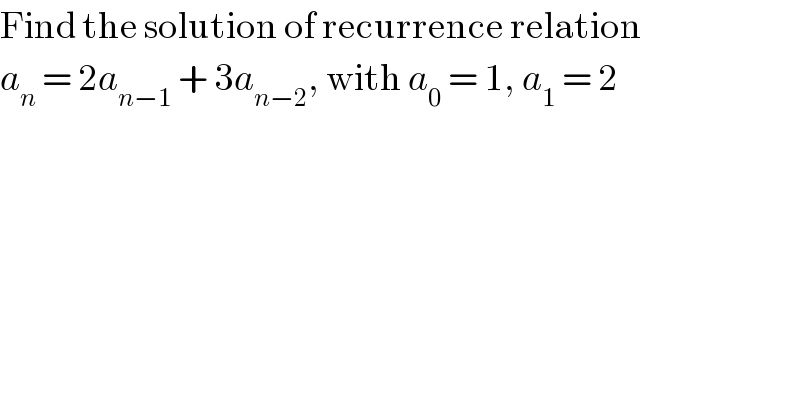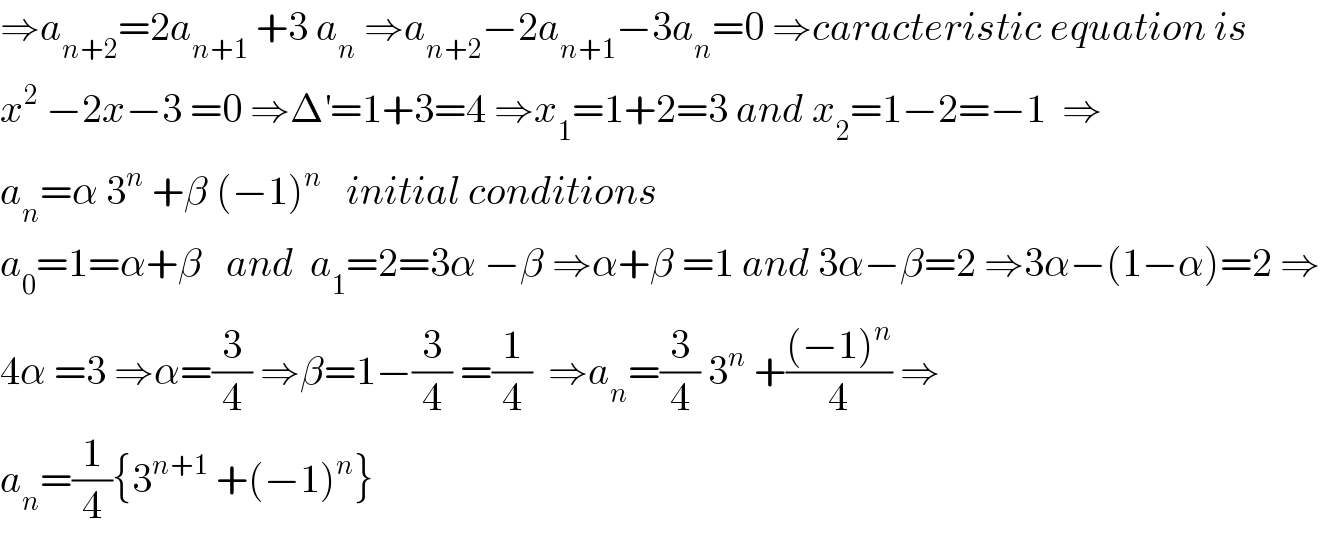
Question and Answers Forum
Previous in Relation and Functions Next in Relation and Functions
Question Number 56864 by Joel578 last updated on 25/Mar/19

Commented by maxmathsup by imad last updated on 25/Mar/19

Commented by Joel578 last updated on 26/Mar/19

Commented by turbo msup by abdo last updated on 26/Mar/19

Answered by mr W last updated on 25/Mar/19
![let a_n =Ap^n +Bq^n ⇒ Ap^n +Bq^n =2Ap^(n−1) +2Bq^(n−1) +3Ap^(n−2) +3Bq^(n−2) ⇒ A(p^2 −2p−3)p^(n−2) +B(q^2 −2q−3)q^(n−2) =0 ⇒p and q are roots of x^2 −2x−3=0 (x+1)(x−3)=0 ⇒p=−1 and q=3 ⇒a_n =A×(−1)^n +B×3^n ⇒a_0 =A+B=1 ...(i) ⇒a_1 =−A+3B=2 ...(ii) ⇒A=(1/4) ⇒B=(3/4) ⇒a_n =(1/4)[(−1)^n +3^(n+1) ]](Q56866.png)
Commented by Joel578 last updated on 26/Mar/19

